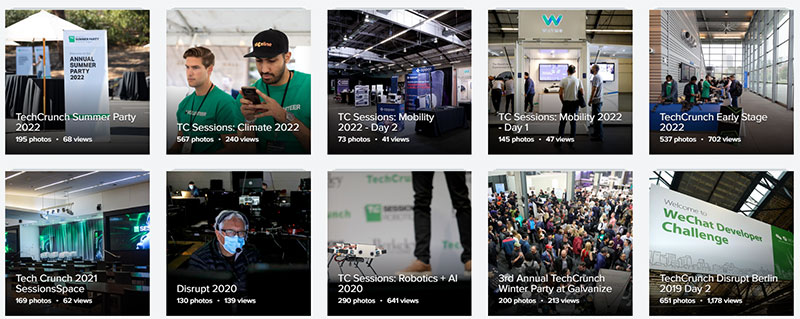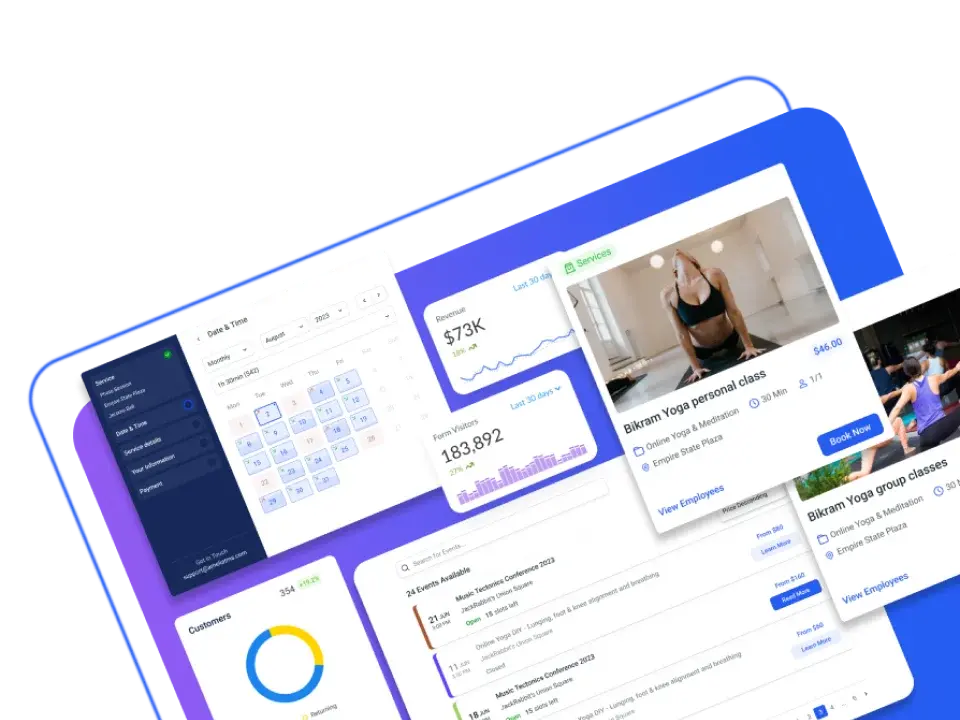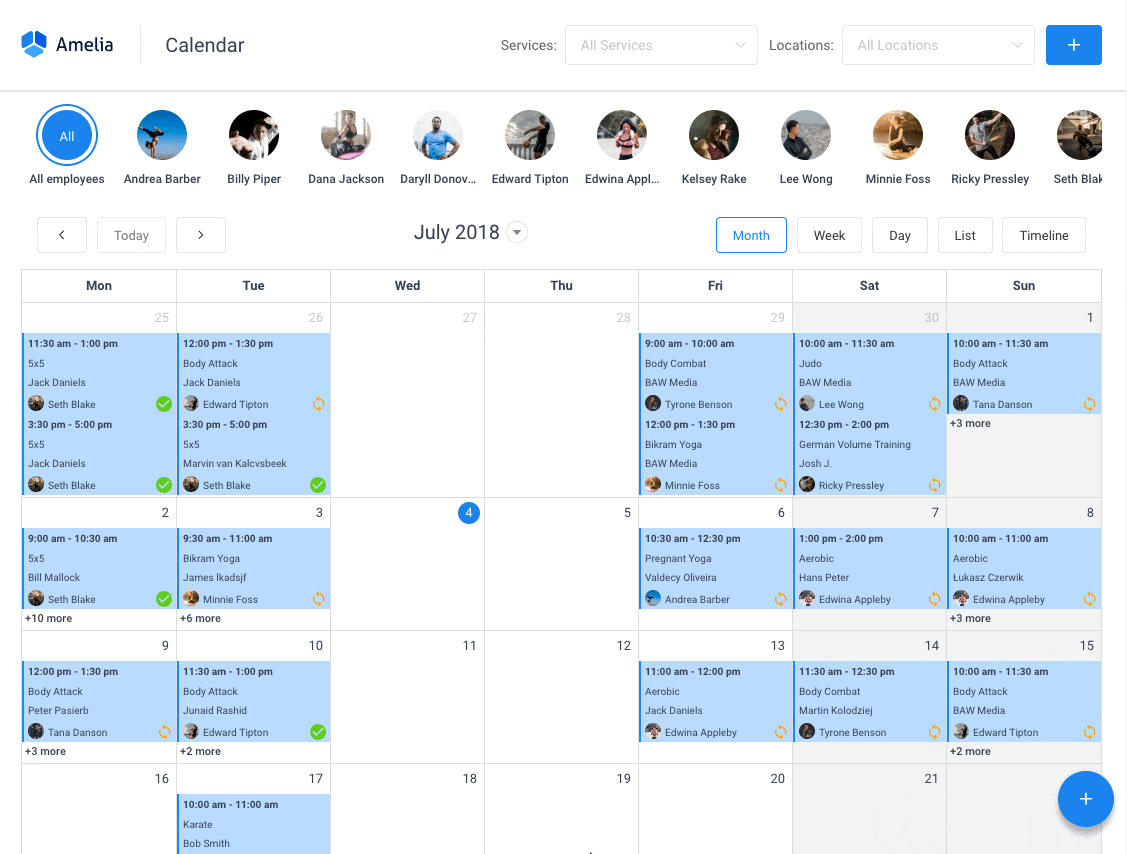Event planners need to be well-organized to coordinate every step in the planning process. Without an effective strategy, a busy schedule can easily turn chaotic, and soon you’ve lost control of the plan meant to get your event off the ground. Since you’ve got to manage several vendors at once, liaise with stakeholders and make payments on time, it’s important to polish up your plan of action and get organized.
A great way to do this is to adopt practical tips and techniques to enhance your organizing skills and make a success of your event.
Even though each event is different in its own way, this post is designed to share some general inside information you can use when organizing your next event, no matter its objective.
The following is a set of some essential event planning tips you can apply when putting together your next memorable event.
Begin as Early as Possible
The first step in the event planning process is to determine a clear-cut goal, whether it’s a social gathering, corporate retreat, or fundraiser. It will be easier to focus on the key aspects of the event, like location, type of venue, and attracting sponsors, if you have established a clear and definite intention of the event.
Don’t delay when it comes to getting started with your event planning. A sizable event needs at least four to six months to get things organized while a small-scale event needs one month at most. An important tip to keep in mind is to ensure that vendor contracts are finalized weeks before the event to keep things running steadily up to the big day.
Establish Clear, Quantifiable Goals
When you’re looking to set realistic goals and targets, begin with a couple of questions:
- Why is this event being planned?
- What do the event organizers expect to accomplish with this particular event?
Improve the success rate of each task on your event planning checklist with a solid understanding of your company’s main objectives before you start planning. Do you want to raise a certain amount in donations for the next big project? Are you looking to bring in 50 or 500 guests? Perhaps you are trying to draw attention to a specific cause.
Make sure to set goals with criteria that allow you to measure your progress. This will help your team to not only visualize the goals but to realize them too. A capable event planner will also take into account the outcome when goals are reached, missed, and even surpassed. They would further consider when it’s best to wrap things up, and the right time to try something more captivating with the next event. When you know exactly where you want to be, you know how to arrive there effectively.
Plan with Transparency
Keep your key stakeholders and marketing team clued into your event planning. Inform them of the schedule you have established, and what you will deliver, such as your goals and objectives for the event. By keeping the stakeholders involved in the process, you can brand and merge the experience for all event attendees.
In the case of a notable event, keep attendees up to date as often as possible to make sure all the details in the event timeline, from concept to media PR, are running smoothly.
Foster Professional Relationships of Mutual Respect
It’s crucial to keep in mind that your professionalism is tied to organizing a successful event. One of the key event planning tips to remember is to focus on engaging clients. Endeavor to identify clients that respect what you and your company does and establish a lasting partnership with them.
Be determined to lay the groundwork for good business relations by valuing and maintaining mutual respect. Utilize your strengths and you will create an optimal experience for your guests.
Become Best Friends with Data
Develop a way to measure and learn from the results of your event planning skills, and collect data to determine the effects of your decisions during the planning process.
How can you ensure that your process is having a legitimate impact? You can carry out objective surveys and measure NPS, for example.
Possessing quality data doesn’t just help you improve in the planning of future events but supports your case when clients push ideas that may not be successful.
Sell more event tickets with the right tool for the job
Staying organized has never been easier.
You can now manage your business and grow your brand with a single, powerful WordPress booking plugin that keeps all of your appointments or event bookings in line, your clients organized and your business booming.
Amelia is the perfect WordPress events plugin for business owners who need to streamline their booking experience both for their staff and their clients.
Amelia handles everything for you, even sending automated email or SMS reminders to your clients. No-shows? Not anymore!
The Amelia WordPress booking plugin adapts to different industries for a blissful online booking experience and employee management.
Want to know more? Check out Amelia’s awesome features to see what you are missing.
Identify Your Target Audience
An important part of planning is defining your target audience:
- Locals?
- Business partners or executives?
- Management?
- Current or potential clients?
- A combination of these groups?
A key to a successful event is to get through to the intended audience. Once you know who, you can work on how to tailor the event to their needs and interests.
Compile enough data on your audience, demographics, attitudes, interests, or dislikes, et cetera. Rely on their characteristics to help you figure out and define your specific audience.
Hire Amazing Staff
Event planning tips highlight the value of hiring good staff in creating a successful event. They will exhibit a respectful and professional attitude and will have a deep knowledge of the event in order to answer questions from guests.
It’s vital to confirm what experience the event staff brings to the job, so have them fill out applications and provide references you can verify.
And be sure to have someone look over event details and tie up loose ends before the event begins so that you don’t have any unwanted surprises during the event. A general service trade show contractor can help you out with the floorplan design and layout, show branding and planogram layout, custom registration, entrance unit and kiosk fabrication, and more.
Choose Your Event Space Carefully
You’ve set the date, now you need to book the perfect venue. Important details such as location and date need to be finalized as soon as possible. This is so event management can get an early start on the marketing campaign.
Take the following into account when considering a venue:
- Are the elevators and entrances easily accessible to all? Are all-gender WC facilities available? Is there enough room if interpreters or a live-captioning screen are required?
- Space requirements for 50 guests differ when compared to 500.
- Is there a sizable parking lot, and is there easy entry from public roads?
- Are you required to purchase a particular insurance? What are the regulations on liability?
- Ensure there is space for AV equipment, including plugs, extension cords, and et cetera, if speakers, microphones, and cameras are required for the event.
Have a Comprehensive Event Plan
A thorough event plan should outline a to-do list that covers all key aspects from objectives to logistics. This plan will assist you in keeping organized, save time and make sure your event planning stays on course. It can also be a great resource for attendees, team members, and others involved in the organization setting up the event.
The essentials an extensive plan should include are
- Venue
- Logistics
- Catering Management
- Speakers/Talent
- Presenters/MCs
- Schedule/Timeline
- Entertainment
- Promotion Package
- Registration Management
- Sponsorship Plan and Management
- Volunteer duties
Brand Your Event

A current theme that captures and captivates can help your event to stand out from the competition. Ensure you carry this theme throughout the various features of the event, especially in the name. Showcase features that are distinctive, and promote them in online media to entice people to attend your event.
When considering various event names, ask yourself: how does this event differ from others hosted in your industry? What message or ideals are you hoping to express through this event? What are the principal features of your event?
Generate a tagline: After you’ve established the name, come up with a tagline. Remember to keep it to the point and make it catchy, after all this plays into the brand of your event.
Draw up a logo: If you’re organizing a large-scale event or a series of events, you’ll need to create a logo.
Establish a visual identity: compose a visual identity that brings together all the features of the event.
Craft a Multi-Channel Marketing Plan
When planning an event, make use of social media, the official website, and email newsletters to promote the event and sell tickets. It’s important that the following marketing content includes details about the event, how attendees can sign up, and what they can look forward to:
- Emails sent to members and guests of past events
- Posts on various branded social media platforms (use graphic design templates to create eye-catching designs)
- Information made available on the company’s official website
- Information in the routine newsletter
- Have speakers and high-profile guests promote event details via their social media platforms
- Obtain and guarantee a variety of sponsorships (compile a list of potential sponsors you’d like to endorse your event)
Create a Budget and Stick to It
It’s vital to determine from the start the budget you have available since this will influence the type of event you can put together. An event planning tip from Worley advises you work out the amount you’re willing to spend, then budget to spend 10% more of the initial estimate.
Organizational hiccups can turn up at any moment. Plan to cover any extra or unforeseen expenses.
After you’ve established the budget, be sure to identify which resources will be used where. For example, squandering your budget on decorative elements instead of investing in a professional and experienced AV crew could bungle your event.
Create a Timeline and a Checklist
A fixed deadline ensures that you keep the event planning running without delays. It’s more effective than a general to-do list as you can determine when certain decisions need to be reached and jobs completed.
A concise checklist assists you with recognizing the tasks you need to carry out, determine deadlines to reach, and decide on any needed extra support. You can also generate financial and time estimates during the preparation process. Making a checklist can also help you to assess the headway you make with each task.
Keep your timeline and checklist updated as the event day gets closer by asking yourself the following:
- when will vendors arrive?
- who is the point of contact?
- when will meals be served?
- when does the DJ take over from the live band?
Showcase Your Sponsors Effectively
Whether you’re putting together in-person events or virtual events, there is no need to completely finance the whole affair unaided. Get in touch with potential sponsors to work out opportunities for financing the event in exchange for brand exposure with attendees.
Set up a plan for how you would like to showcase your sponsors. Incorporate the following in your planning:
- An event app for attendees. This resource will allow guests to recognize the various sponsors, send push notifications, and connect to a user-friendly itinerary.
- Sponsor marketplace. You can still meet your sponsor’s requirements even with an online event.
- Marketing materials. Bolster the quality of the experience for your sponsors with a summary of what they stand to gain by contributing to the event’s marketing tools. Use shout-outs during the event to create brand awareness for the sponsors with the audience.
Most event planning tips will remind you to deeply value your sponsors from the minute they sign the contract. Keep in mind they have paid to be seen and heard at your event.
Photograph Everything

TechCrunch has a Flickr account with images from their events.
Be sure to capture exciting and interesting photos that highlight the success of your event. These can then be shared on various social media marketing platforms to generate buzz.
A professional photographer will have a good idea of the types of photos that promote your specific event and will ask you for particular details. Let them know you want various photos that capture the diversity of the event, like event branding, a lively space, and guests having a good time.
During the design phase, make sure to consider all the visual aspects of your event. What would create a dynamic background? What key features would photograph well and promote the brand or sponsors?
Plan the Logistics of the Day
Guarantee the success of your event by pinpointing, reviewing, and hiring all essential event specialists (AV technicians, decorators, photographers, security personnel, et cetera.). Live speakers and presenters, which may include influential experts and industry influencers, should be booked as they are qualified to share the ideas you’d like to showcase at your event.
It is vital that you strike a balance in the event schedule of your guests. You want them to engage with the program as much as possible. Create variety within the event to capture and hold their interest.
But you also want to create enough time and space in the program to allow attendees to mingle and process all the information they’re taking in. The schedule should provide a margin for any unexpected occurrences.
Have a Backup Plan in Case Something Goes Wrong
You must compile a backup plan in the event of any unexpected slip-ups or issues. A comprehensive backup plan will guarantee that your event runs smoothly and is a success with all involved. So make sure to share the plan with staff, vendors, and those in charge of the venue. Make sure they’re on board with the plan and are aware of the protocol to be followed in case of any issues.
Some of these issues might include having backup equipment (microphones, speakers, et cetera.), a list of possible scenarios that could take place, a no-show speaker, or the event moved online.
Don’t Fear the Negotiation Process
Here’s a good event planning tip to keep in mind when dealing with vendors: everything is negotiable. Don’t flinch when negotiating prices. Hidden costs can pop up at any time during the event planning phase, so work out your budget before dealing with vendors. Determine to negotiate 5-10% lower than the first offer.
Learn the Logistics of Other Industries
Being familiar with the intricate details of how other industries function is not necessary, but having an idea of the general logistics will definitely help you as an event planner. Be as specific as you can when communicating with other organizations and vendors involved.
For example, being able to determine the amount of square footage needed to accommodate chairs, tables, and tents, being clued up on generator wattage, air conditioning BTUs, and other such details will help you to organize your event smoothly.
Collect Staff and Attendee Feedback
Once the event is over, get feedback on the outcome. Getting vital feedback from both staff and attendees will help you to gauge what made it a hit or flop with everyone involved.
By understanding important elements that made a success of previous events, you can aim to repeat those tasks when planning your next event. You will also be aware of where you have room for improvement to raise the bar for upcoming events. If there were obstacles or issues that came up during the event planning process or the event itself, take note and make sure to address them.
In doing so, you will acquire a better understanding of what makes or breaks an event, and what you can carry on doing, or work on changing when planning another event.
FAQs about event planning tips
1. How can I create a successful event planning timeline?
It’s important to carefully evaluate all the tasks that need to be finished before, during, and after the event while establishing an event timeline.
Work backward from the event date after establishing a reasonable deadline for each item to make sure you have enough time to finish everything. Although it’s crucial to be adaptable and ready for unforeseen delays, having a well-planned timeframe helps keep you on track and alleviates stress.
2. What are some key factors to consider when selecting a venue for my event?
One of the most crucial choices you’ll have to make while organizing an event is the location. Take into account the venue’s size, location, accessibility, and whether it has the facilities required to host your guests.
You should also think about the venue’s price, accessibility, and any additional costs or limitations. In order to be sure that the location fulfills your needs and expectations, it is crucial to visit it in person.
3. How can I keep my event within budget while still making it memorable?
For event planning to be successful, spending should be kept to a minimum. Create a realistic budget that accounts for all of your projected costs first, and then strive to adhere to it as closely as you can.
Take advantage of opportunities to save money, such as haggling with suppliers or choosing less expensive materials for decorating. Be ready for unforeseen costs and think about setting up a contingency fund just in case.
4. What are some effective strategies for promoting my event to ensure maximum attendance?
Effective event promotion is essential to ensuring the greatest possible turnout. Determine your target market first, then hone your marketing strategies to appeal to them. To spread the word, use a number of platforms, including social media, email, and advertising. Think about rewarding guests who sign up early or invite people to your event.
5. How can I effectively manage event logistics such as transportation, catering, and accommodations?
Organizing and managing event logistics can be challenging, but doing so can help make sure that everything goes off without a hitch.
Start by drafting a thorough plan that covers every aspect of the logistics, including travel, catering, and lodging. To make sure that everyone is on the same page, communicate often with vendors and other stakeholders. Also, be ready to change as necessary.
6. What are some important considerations when selecting vendors for my event?
Planning an event requires careful consideration when choosing vendors. Find suppliers who have worked on occasions like yours, and request references and portfolios to see examples of their work.
To minimize any surprises, negotiate contracts carefully and be explicit about your goals and budget. For vendors to supply what they need when they need it, communication is essential.
7. How can I ensure the safety and security of attendees at my event?
Event organizers place a high premium on making sure attendees are safe and secure. Create a plan to address any risks you identify, such as those related to the environment, crowd management, or medical emergencies.
Make sure all personnel and vendors are prepared to handle emergencies and explain safety procedures to guests. To assist keep things in order and protect participants, think about hiring security professionals.
8. What are some tips for creating an engaging and memorable program or agenda for my event?
To keep guests interested and invested in your event, you must develop a compelling program or agenda. To organize your program, start by deciding on your aims and objectives for the occasion.
Find ways to include interactive components, such as seminars, breakout sessions, or panels with questions and answers. Keep in mind how long your session will go and plan breaks to keep people energized.
9. How can I incorporate technology into my event to enhance the attendee experience?
Utilizing technology can improve attendees’ experiences and increase the lasting impact of your event. Think about use social media to encourage networking and participation or mobile apps to speed up event registration and check-in. Find ways to use augmented reality, virtual reality, or other cutting-edge technologies to provide visitors a memorable and interesting experience.
10. What are some best practices for post-event evaluation and follow-up with attendees and stakeholders?
Evaluation and follow-up after your event are crucial for gauging its performance and pinpointing areas that need improvement. To gain a sense of what went well and what didn’t, start by getting input from participants, vendors, and stakeholders. Create a post-event report based on that feedback, and use it to inform your event planning going forward. To show your gratitude and keep those connections with the participants and stakeholders, follow up with them.
Success with Event Planning Tips
Planning an event can be a difficult and demanding task. But the 10 event planning tips discussed in this article will help you to put together a strong and effective event planning strategy.
An intimate and detailed understanding of your target audience, who they are, and what they want, is crucial in guaranteeing the success of your event. The more acquainted you are with how you can provide a valuable experience for attendees, the more opportunities you create to put together the ideal (and successful) event. And that’s the goal of every well-organized event planner.
If you enjoyed reading this article about event planning tips, you should check out this one with event WordPress themes.
We also wrote about a few related subjects like setting up a WooCommerce events calendar, marketing strategies for ticket sales maximization, hybrid event ideas, and event management skills.
Not only that, but we also created articles about virtual event ideas, event statistics, how to get sponsors for an event, tech conferences, event proposal templates, and the most-watched sporting event.



